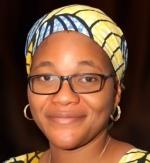
Debating Ideas is a new section that aims to reflect the values and editorial ethos of the African Arguments book series, publishing engaged, often radical, scholarship, original and activist writing from within the African continent and beyond. It will offer debates and engagements, contexts and controversies, and reviews and responses flowing from the African Arguments books.

Head of Sudan’s TMC Burhan meets with Egyptian President El Sisi on 27 October 2020 in Cairo. Credit: SUNA
It appears that mediation between Sudanese army chief Abdel-Fattah al-Burhan and former prime minister Abdallah Hamdok has stalled. Instead, al-Burhan is showing signs of what the future of Sudan looks like under his rule – a return to autocracy.
During a protest on 7 November 87 teachers were detained.[1] On 4 November, politicians from the Forces of Freedom and Change (FFC) were detained immediately after meeting with the head of the UN mission in Sudan.[2] There has been a widespread round-up of activists by al-Burhan’s forces. It appears that more restrictions are being placed on Hamdok’s house arrest.[3]
Although al-Burhan and others describe these events as “arrests” it is more accurate to refer to the junta’s extrajudicial activity as “hostage taking”. There has been no judicial process during these round-ups, and the junta has used unlawful detention – enabled under emergency laws – as bargaining chips in negotiations with Hamdok.
The hostages include Hamdok, who is tasked with negotiating while not allowed to leave his house and communicate with the outside world. These negotiations are a sham by al-Burhan to give a veneer of authenticity while he tries to consolidate power. Granting legitimacy to the current negotiating conditions would be a mistake.
Al-Burhan’s path to victory is convincing the security establishment that he can deliver more value for them than his rivals. Al-Burhan will not be able to lead like a “benevolent dictator” because he must use state resources to keep his patronage network together. It means that the current Minister of Finance, the Justice and Equality (JEM) leader Gabriel Ibrahim, is an important ally because he has control over Central Bank assets (including a recently deposited $100 million of World Bank funds).
As has been the case in Sudan for decades, Western diplomats are finding out that their ability to influence events is limited. Attempts by the US government to sway the regional backers of al-Burhan, the coup-quartet of Russia, the UAE, Egypt, and Saudi Arabia, have so far not been successful. It is partially because the coup-quartet does not necessarily care if Sudan is prosperous. In fact, it may be in their interests to keep agricultural, mineral and other primary imports from Sudan as cheap as possible to boost their own population’s purchasing power.
Western condemnations at the UN and other forums fall on deaf ears. Sudan survived thirty years as a pariah state, and al-Burhan is likely confident he can return to isolation.
There has been speculation that the $2.5 billion in planned World Bank financing and other support will need to be replaced by the coup-quartet. Not necessarily. If al-Burhan cared about his population then this slashed assistance would be significant, however there are no signs that the military leader is concerned about the fate of Sudanese.
Perhaps the only point of leverage that the Biden administration has with Saudi Arabia, the UAE and Egypt is weapons procurements and foreign military financing, but the Biden administration has been unwilling to put that on the table.
Rather, the fate of Sudan will be decided by Sudanese. Protestors’ ability to endure repression, al-Burhan’s ability to manage a fractious coalition, and security officials willingness to return to repression will decide the fate of Sudan.
End Notes
[1] ‘Sudan authorities arrest 87 teachers in sit-in protest against military coup’, Al Bawaba, 8 November 2021.
[2] UNITAMS statement of the detention of members of the FFC’s Central Council, UNITAMS, 5 November 2021.
[3] ‘Sudan talks over coup hit “semi-deadlock”, sources from ousted government say’, Reuters, 6 November 2021.
————————————————
“This Is Not a Coup” is a daily update from Sudan that gives perspective on the country’s military takeover. The author is anonymous to protect their identity. The title is a reference to the 26 October speech of General Abdel Fatah al-Burhan






